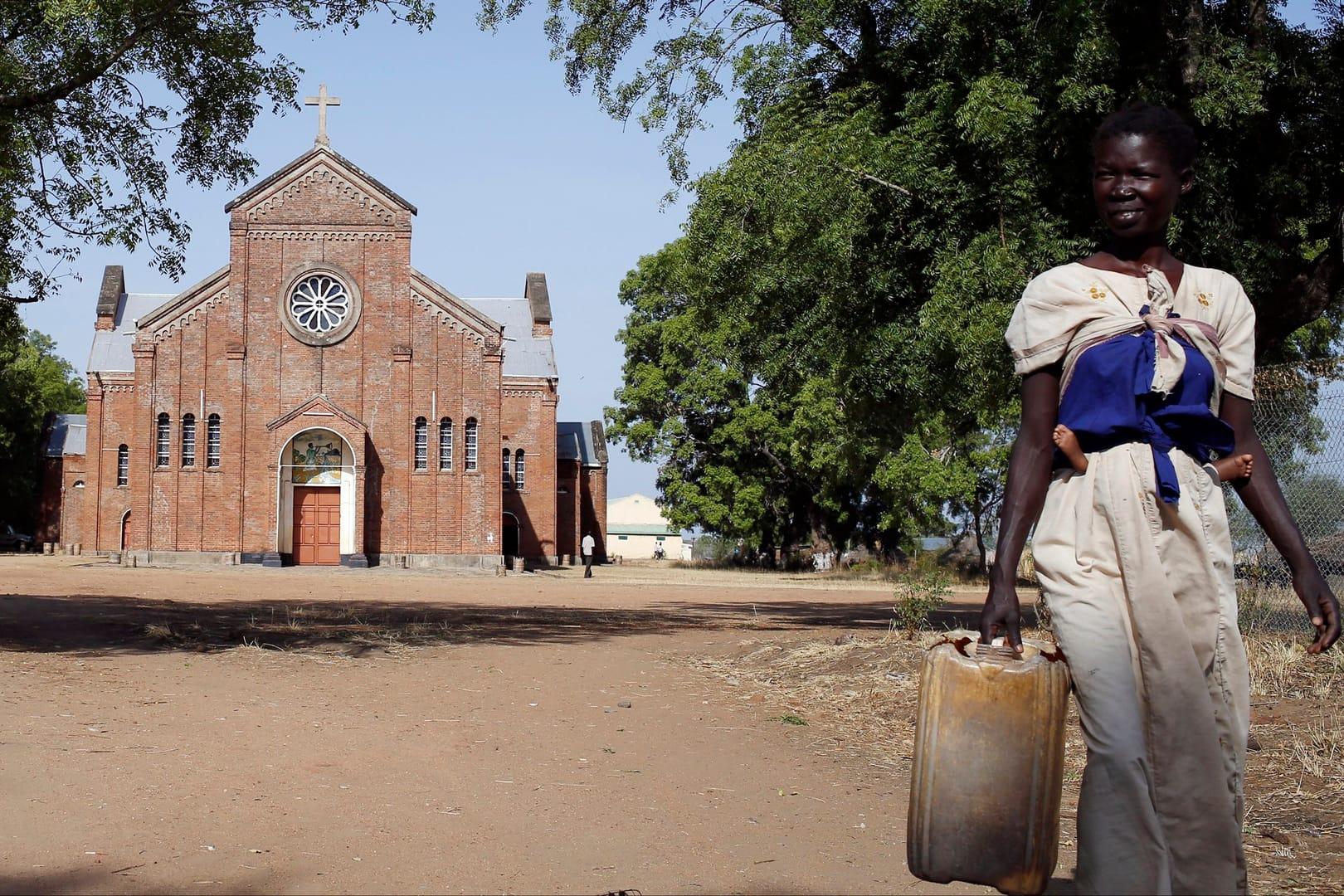YAOUNDÉ, Cameroon – East Africa is currently facing a unprecedented amount of anti-Christian persecution, according to a leading Christian charity.
“The intent of persecutors is often to drive Christians out of the area, and unfortunately they often succeed. Loss of home and property, the necessity to start over, it takes a huge toll,” said David Curry, CEO of Open Doors USA.
He told Crux that Open Doors now runs economic empowerment programs in East Africa with the ultimate goal “to equip them to build thriving, sustainable lives amid persecution.”
“When their physical, mental, and spiritual needs are met, they are more equipped to meet the needs of their community as well,” he said.
What follows are excerpts of Crux’s conversation with Curry.
Crux: Can you give us an update on the situation of anti-Christian persecution in East Africa?
Curry: People from Islamic backgrounds who have studied the Bible and commit their lives to Jesus may lose their jobs, face harassment from their community, be beaten or sexually assaulted, and are targeted by their families. Yasin, an Open Doors partner in East Africa, said:
“Marginalization is a major strategy for persecutors. Though it is not as obvious as violence, marginalization is very effective because Christians are so dependent on the community for survival.
The family will first warn or threaten the Christian, urging them to come back to their original faith. If they refuse, the family may start to withdraw economic support or even kick them out of the home. Parents disown the believers, saying, ‘You are not my child anymore.’ In extreme cases, the Christians are beaten, forced into marriage or even killed.”
Persecution from family members often escalates to persecution from the entire community. Christian-owned businesses are boycotted, women are forced into marriages, and Christians are offered bribes to recant their faith in Jesus.
According to Yasin, radical Muslim extremists frequently destroy churches, burn the homes of Christians and carry out violent attacks against them: Christians are often left with no other choice than to flee … the aim is to weaken Christians and force them to recant or leave the area.
Governments are sometimes guilty of discrimination against Christians as well. Restrictions on church registration, the demolition of church properties, arrests, and fines on Christian leaders are all common forms of persecution in this region.
How widespread is Christian persecution in East Africa?
There is a vast unknown toll of persecution in East African countries, but I estimate at least three million Christians face persecution in East African countries, including Ethiopia, Eritrea, Kenya, Somalia, and Sudan. Three of these countries – Eritrea, Somalia, and Sudan — rank in the top 10 of Open Door’s 2020 World Watch List, indicating the intensity and frequency of persecution.
What impact has such persecution had on individual Christians and for Christianity as a whole?
Believers face hidden trauma. They become depressed and isolated because they cannot openly process the injustice they face and have so few places to turn for justice or help.
Open Doors provides trauma counselling to victims of persecution, providing mental health support and spiritual encouragement. Open Doors also provides medical care, emergency relief and economic support to help Christians rebuild their lives after persecution.
Open Doors runs economic empowerment programs for persecuted Christians in East Africa. Is there a connection between economic well-being and the resilience of Christians faced with persecution?
The intent of persecutors is often to drive Christians out of the area, and unfortunately, they often succeed. Loss of home and property, the necessity to start over, it takes a huge toll. We feel it is important to empower Christian men and women to earn a wage to support their families and have meaningful work. It’s critically important that we equip and strengthen Christians so they can impact their community and build healthy families.
Though Open Doors does provide emergency relief for Christians in need, the ultimate goal is to equip them to build thriving, sustainable lives amid persecution. When their physical, mental, and spiritual needs are met, they are more equipped to meet the needs of their community as well.
The COVID-19 pandemic has increased the need for emergency relief among persecuted Christians. We’ve recently seen cases where Christians are told, ‘Come back to Islam and we will give you food.’ The result is that Christians are faced with a choice: Recant their faith in Jesus or starve.”
How successful has the economic empowerment been?
Open Doors’ economic empowerment efforts equip Christians with vocational training, tuition support, and small business loans. These efforts have been remarkably successful in helping those attacked for faith in Jesus – so they can ultimately remain and live out the Gospel, even amid persecution. An estimated 26,700 Christians were directly impacted by this work in 2019.
What do you think is driving Christian persecution in East Africa, and perhaps across the continent?
Radical Islamic extremism is the primary driving force behind the persecution of Christians in East Africa. It’s especially dangerous when it’s paired with ineffectual governments, like we see in Somalia. These forces motivate overt acts of violence in addition to the more insidious, quiet forms of persecution, such as marginalization.
Christians in the West need to raise our voices in prayer and support for the millions of Christians whose livelihoods are constantly at risk for their choice to follow Jesus.













